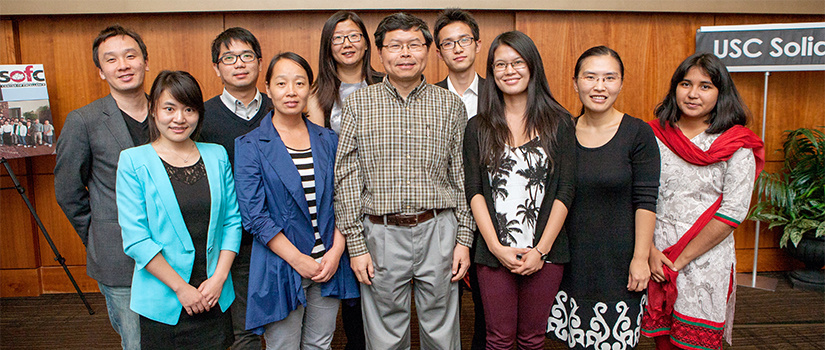Overview
The South Carolina Solid Oxide Fuel Cell Center was established in 2006 by the South Carolina SmartState Centers of Economic Excellence program. As the only center of its kind in the nation, its mission is to apply science to drive engineering solutions to enable advanced clean energy systems for a bright and sustainable energy future. The scope of the center covers fundamental and applied research in energy materials, components and devices.
Research Strengths
The center’s research strengths are engrained in materials and components for solid oxide electrochemical cells, understanding physical and chemical properties of solid oxide functional materials, H2 and synthetic fuels from H2O and CO2, direct CO2 capture and conversion, rechargeable batteries, multiscale (atomic to system) computational modeling, and fundamental solid-state chemistry and electrochemistry.
People
The Solid Oxide Fuel Cell Center is composed of six core faculty members and directed by Dr. Kevin Huang, Professor of Mechanical Engineering and SmartState Endowed Chair. His research includes solid oxide electrochemical cells, storage batteries, gas separation membranes, solid state defect chemistry and electrochemistry and multiscale computational modeling. Dr. Huang directs a team of researchers, graduate students, and undergraduates associated with the center.
-
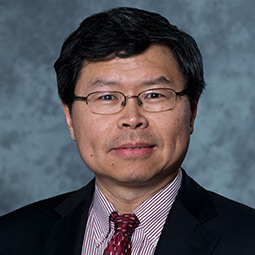
Kevin Huang
Director
-
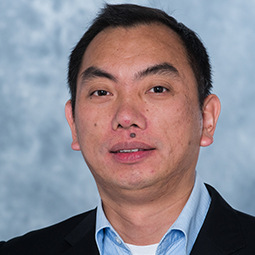
Ming Hu
Core Faculty
-
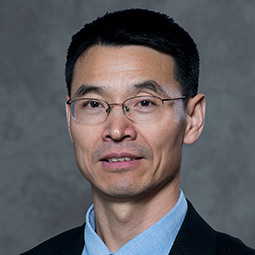
Frank Chen
Core Faculty
-
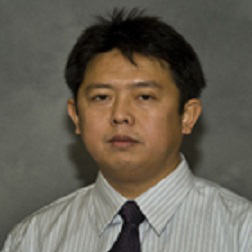
Xinyu Huang
Core Faculty
-
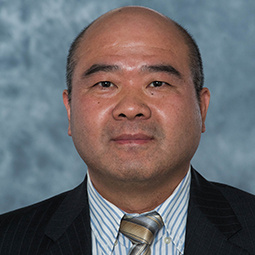
Xingjian Xue
Core Faculty
-
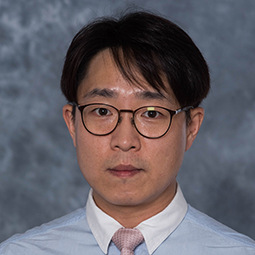
Dongkyu Lee
Core Faculty
Highlighted Projects
One of the major barriers to the commercialization of solid oxide electrolysis cells (SOECs) for hydrogen production through electrochemical water splitting is the short cell/stack life caused by chemical-expansion-mismatch induced mechanical delamination of oxygen electrode and metal-interconnects-oxidation resulted Cr-poisoning. The project seeks to develop high activity and durable oxygen electrodes for use in SOECs to produce high flux hydrogen at high efficiency and low cost. Research project activities include material synthesis, material analysis/characterization, performance testing/optimization, and computational modeling. This research is performed at existing, purpose-built laboratory facilities of UofSC and the UMass Lowell. Additional collaboration involves the HydroGEN Energy Materials Network National Laboratory consortium.
(Sponsor: US DOE)
The shale revolution has enabled large volume production of low-cost natural gas. The majority of this resource is still being burned for heat and power, releasing carbon dioxide into the atmosphere and further burdening carbon capture efforts. Meanwhile, directly converting natural gas into valuable chemicals has received significant interest from academia and industry due to the potential profit margin brought by low-cost natural gas. This research project aims to further fundamental scientific knowledge related to carbon dioxide capture, natural gas conversion mechanisms, and catalyst development using a new class of chemical-potential driven (electricity-free), ceramic-based, catalytic plug flow membrane reactors (PFMRs) as a platform. The gas separation and natural gas conversion are unified in a single reactor design to be energy efficient and cost-effective.
The importance and potential impact of the ongoing scientific advances in carbon dioxide capture and natural gas conversion technologies will be presented to the public during the annual "Edison Lecture Series" program at the University of South Carolina. UofSC will team up with Benedict College to host a joint summer workshop on energy research topics to promote education and workforce development for students underrepresented in STEM fields. Undergraduate students from Benedict College in engineering majors will be engaged in the project by being offered summer internships and academic-year part-time jobs, along with having access to UofSC's and University of Massachusetts at Lowell's existing undergraduate programs. Two new courses on the topics of gas separation / conversion and computational analysis for electrochemical systems will be independently developed and offered for graduate students at both UofSC and UML.
(Sponsor: US NSF)
This project addresses fundamental research of advanced battery systems for large-scale stationary energy storage applications in renewable energy production and utility grid stability management. Current state-of-the-art lithium-ion batteries are not sufficient for large-scale stationary energy storage due to concerns of cycle stability, particularly at high cycling rate, safety and cost. Solid oxide metal-air battery systems represent a new class of advanced batteries operated on high-temperature oxide-ion chemistry. It is capable of being charged and discharged at a much faster rate and lower cost and is well suited for large-scale stationary energy storage due to its scalable and modular nature.
This project aims to advance the high-temperature solid oxide metal-air battery towards commercialization through fundamental studies on the dynamic interplays between the two key components of the new battery: reversible solid oxide fuel cell and metal-based energy storage bed. From a broader-impact perspective, the project will advance the science of materials chemistry, electrochemistry and heterogeneous catalysis. The progress and new findings of the project will be included in a new graduate course and disseminated to the community through journal publications. Long-term research collaborations will be strengthened with a neighboring small Historically Black College and University, Benedict College.
(Sponsor: US NSF)
